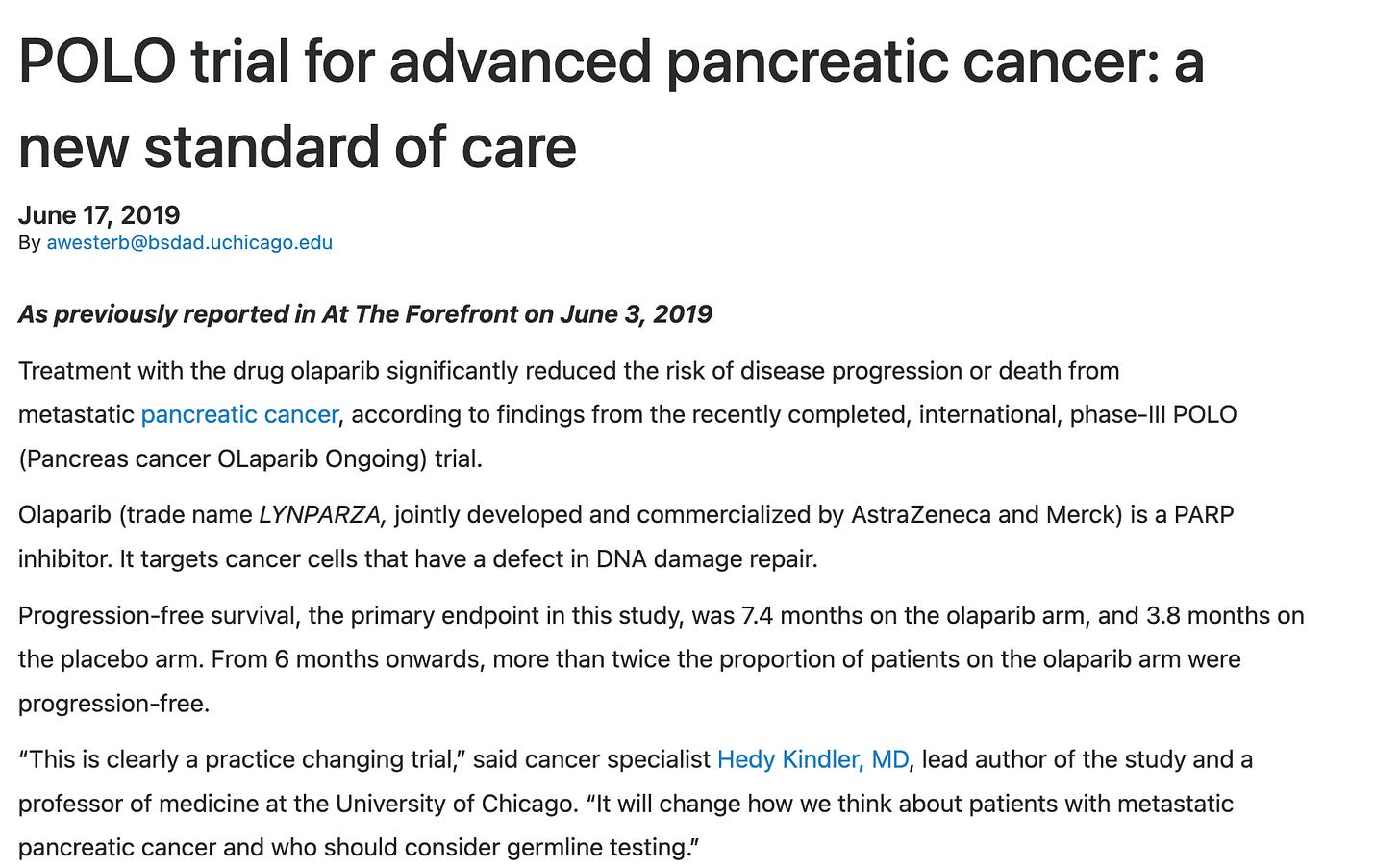Medicine is becoming more corrupt
Corruption is the decline of all institutions
Recently, the University of Chicago— my alma matter— announced that their cancer center would be called the Abbvie cancer center after a 75 million dollar donation. Here is the press release.
They have the audacity to claim that this move will advance ‘equity’ and ‘culturally competent’ care. To a certain audience, these woke buzzwords justify anything. The truth is money like this will almost surely be spent on catering to the wealthy clients and the University of Chicago has very little interest in the tens of thousands of underserved black residents who are <5 miles from campus. Never has, never will.
Forget the buzzwords, let us focus on what has happened. A historical and venerable university has further prostituted itself to pharma. It is the Abbvie cancer center. What if you are a professor at the Abbvie cancer center and you think Venetoclax is overused (an Abbvie drug), are you free to write papers on that topic? Is there not inherently tacit discouragement?
The reason why many countries have declined is corruption. In some places, university positions can be obtained by bribes. Kickbacks can be given to ensure trials enroll on time. The US, and its institutions have historically risen above corruption, and that has led to greatness. Now it seems that corruption re-enters.
Should an academic university have buildings on campus named after Pharma? Should it have a cancer center, named for Pharma? Why not cut out the middle man? Can Pharma just directly acquire a university?
Already, many cancer centers work by taking tens of millions from Pharma to run trials. At the end of the trial, there is often extra cash. This money creates slush funds that keeps universities running. Universities prostitute themselves to get more trials. They invest in CRCs and IRBs and infrastructure to ensure they provide a good service to pharma. This is what leaders are incentivized to chase.
Many of these trials are unethical. The POLO trial, a famously unethical study that gave placebo to the control arm, was run at the University of Chicago. The university put out a dishonest press release, furthering AZ’s interest.
This is what universities have become. CME companies that work for Pharma. Professors have become Pharma-shills. Running bad trials, and being incapable of thinking critically about research, is de rigueur. Make no mistake, this is a form of corruption. This is the corporatization and prostitution of academia.
The administrators who decide it is OK to name the UofC cancer center the Abbvie cancer center are transient actors. They aren’t the brightest minds or most reflective thinkers. They want to maximize their career opportunities and don’t believe in the transcendent and eternal principles of the academy. I worry that their continued pursuit of corporate money will erode their institutions. I worry that they do not even understand what corruption is.
Finally, it does not escape me that the University of Chicago is not only a prostitute, but a cheap one at that: 75 million for a cancer center is not even that much in the grand scheme of university giving.




So infuriating. Did you know that not that long ago - in the early 2000s - very large med student groups and influential leaders like Leana Wen were literally marching on Pfizer headquarters, and partnering with major media like The NY Times to pillory big pharma? Then, a few multimillion dollar “pharma-academic partnerships” later, the med student campaign went silent…. Even worse, they scrubbed their old campaign off the internet! See my story for details on the memory holing process
https://thefederalist.com/2023/03/02/big-pharma-is-unopposed-in-its-domination-of-medical-education/
So, so corrupt! And as you say, so cheap, too! Medical education was bought off for less than the price of a single Aaron judge contract…
Is medicine becoming more corrupt or has it always been corrupt, though now the corruption is coming to light in such a glaringly obvious way we can no longer deny it? What’s happening in medicine is only one instance of a broader crumbling of institutions many of us once thought trustworthy. Ultimately, I believe every single one of us is being invited to reconsider our own relationship with our own body, and to whom we grant power over our sense of health and safety in our bodies.